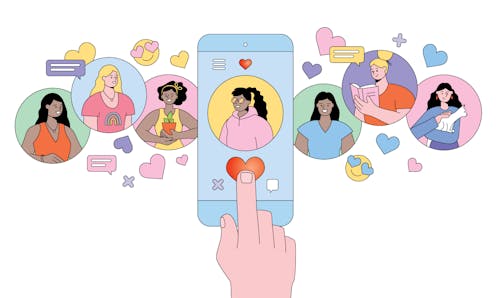Laws meant to keep different races apart still influence dating patterns, decades after being invalidated
- Written by Solangel Maldonado, Professor of Law, Seton Hall University
 People dating online are most likely to like and reach out to people who are white, regardless of their own race. miakievy/Getty Images
People dating online are most likely to like and reach out to people who are white, regardless of their own race. miakievy/Getty Images If you are single and looking for a romantic partner, chances are that you have used a dating app. But the likelihood that others will like, or even see, your profile may depend on your race.
Studies have found...

